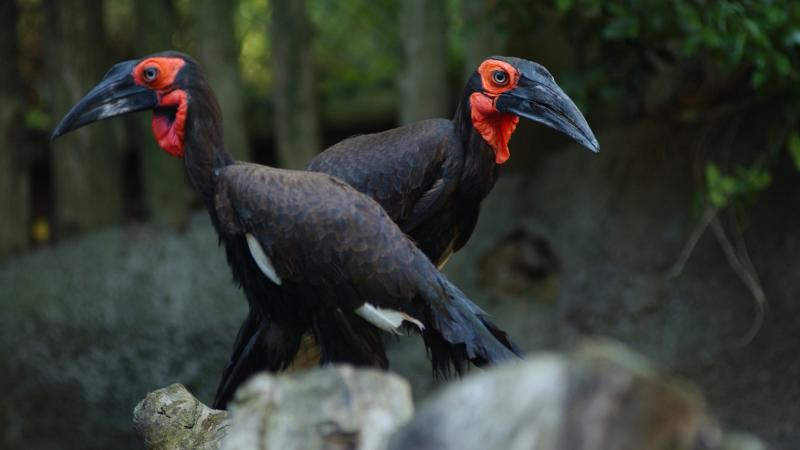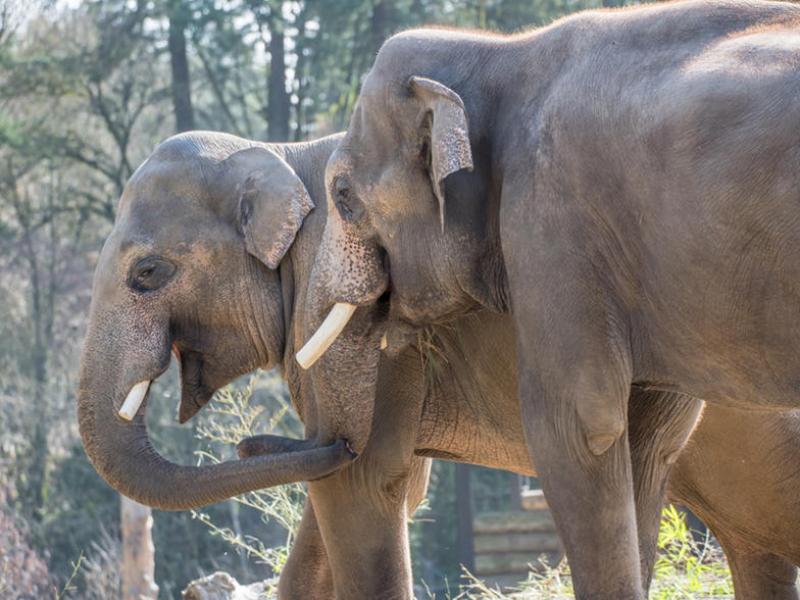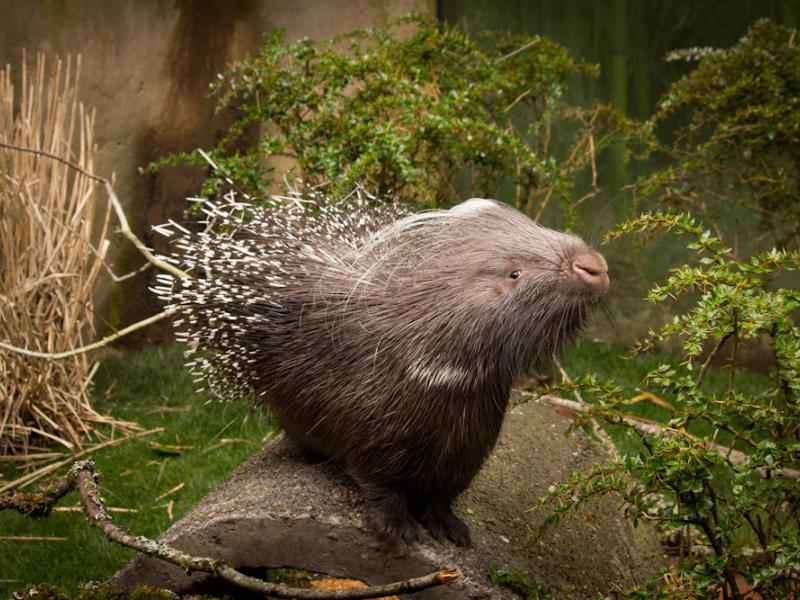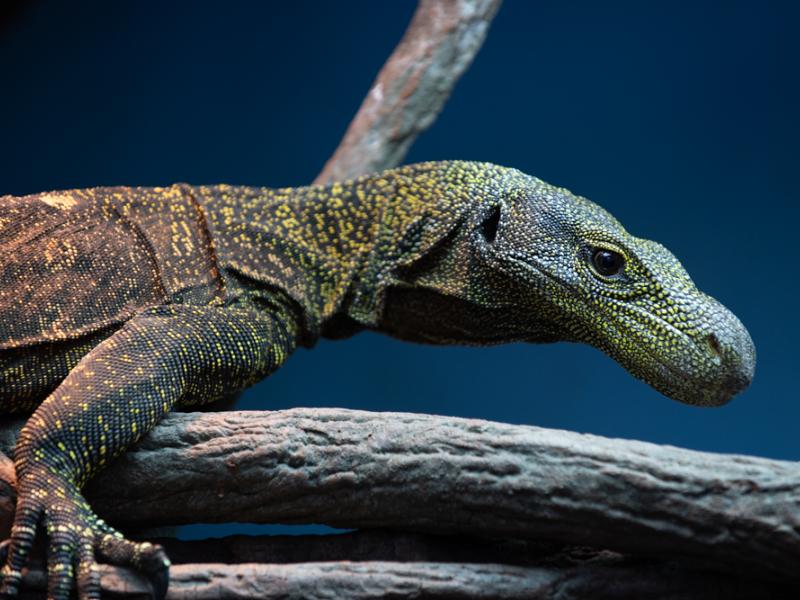
The Southern ground hornbill is a tall, long-legged terrestrial bird native to South Africa. These massive predatory birds - the largest of hornbill species - are capable of capturing hares and driving eagles away from their prey.
Behavior and facts
- The Southern ground hornbill resides in open woodlands, savanna, and lightly wooded grasslands.
- Its diet consists mainly of insects, but it will also eat amphibians, small reptiles, mammals and birds.
- Primarily monogamous, during breeding season males inflate internal air sacs and let out a series of deep booming sounds to attract a mate.
- In flight, it angles its head and legs down, but can reach speeds of up to 18 miles per hour.
- They roost in trees and nest primarily in the cavity of a tree or a hole between rocks.
From birth to death
- They are monogamous, and a pair of Southern ground hornbills may be assisted by several adult and immature helpers.
- During breeding season, males inflate their air sacs to make a series of deep, booming notes.
- The female incubates a clutch of two eggs for up to 43 days.
- Southern Ground Hornbill chicks fledge at 80-90 days.
Status
IUCN Vulnerable
Southern ground hornbills, the Oregon Zoo and you
The zoo's Southern ground hornbills live in the Africa Savanna exhibit.




